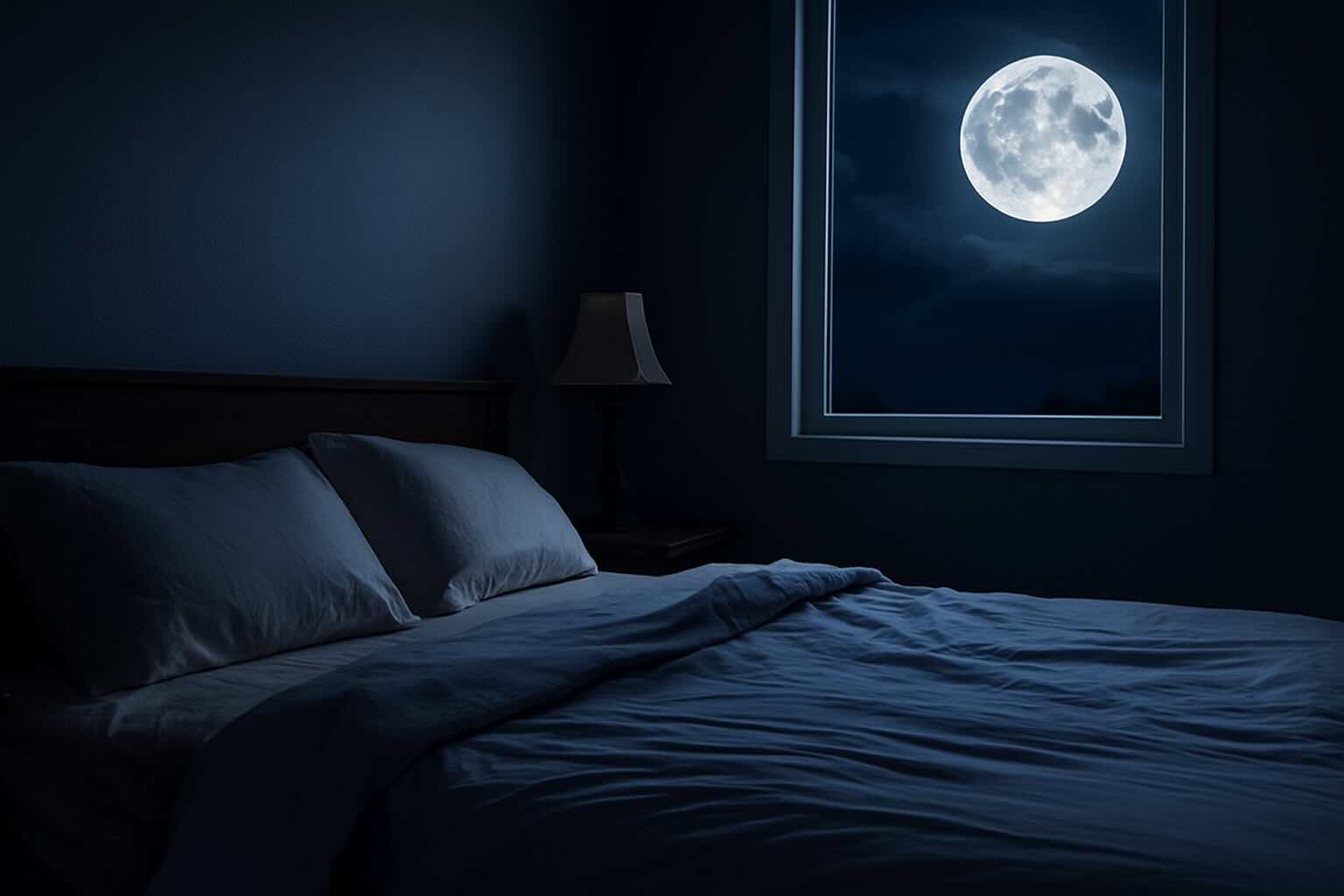Have you ever noticed that when the full moon rises, your nights feel longer and more restless? You’re not alone. For centuries, people have whispered that the moon affects not only the tides but also our bodies and minds. Now, modern science is beginning to uncover what many have suspected all along: the full moon might really be messing with your sleep.
The Ancient Link Between the Moon and Sleep
Long before streetlights and smartphones, humans lived by the rhythms of nature. Farmers planted with lunar cycles, sailors trusted the tides, and healers believed the moon influenced mood and energy. Among these beliefs was the idea that the full moon could disturb rest. In folklore, people became more restless, more emotional, and even more energetic under its glow.
While many of these traditions were brushed aside as superstition, they were born from observation. People really did feel different during full moons. And today, studies are suggesting there’s more truth in those old beliefs than we once thought.
What Science Says About Lunar Sleep Patterns
In recent years, researchers have investigated whether the moon truly affects sleep. A landmark study from the University of Basel in Switzerland revealed fascinating results: during the full moon, participants took longer to fall asleep, slept less deeply, and had reduced overall sleep time by an average of 20 minutes.
The researchers also noted lower levels of melatonin—the hormone that regulates sleep cycles—during full moons. In other words, the brain’s natural “sleep signal” seems weaker when the moon is at its brightest.
Other studies support these findings, though the effect is not always dramatic. Still, enough evidence suggests that lunar cycles may subtly influence human sleep in ways we are only beginning to understand.
Light, Energy, and Evolutionary Theories
So why would the full moon affect us? One theory is simple: brightness. Before electricity, the full moon flooded landscapes with natural light. This extra illumination may have encouraged our ancestors to stay alert, protecting themselves from predators or making the most of night activities.
Another possibility is evolutionary biology. Some scientists believe humans evolved to be more wakeful during the full moon because it was easier to hunt, gather, or socialize under the brighter sky. In this sense, our restless nights could be a survival mechanism buried deep in our DNA.
There’s also the energetic theory. Just as the moon influences ocean tides, some researchers speculate that its gravitational pull could subtly affect the water in our bodies. Though this idea remains controversial, it resonates with people who feel extra restless or emotionally heightened during lunar peaks.
The Emotional Side of the Full Moon
It’s not just sleep that seems to shift under the full moon. Many report feeling more anxious, moody, or overstimulated. Hospitals and emergency rooms often note busier nights during lunar peaks. Some psychologists suggest that heightened awareness or excitement might play a role in disturbed sleep. If your mind is racing, rest becomes harder to find.
On the flip side, some people experience bursts of creativity or energy during full moons. Writers, artists, and spiritual seekers often describe the full moon as a time of inspiration. But inspiration, of course, does not always come hand in hand with rest.
Modern Life and the Moon
In today’s world, with artificial lights and glowing screens, you might think the moon’s natural glow would hardly matter. But studies suggest that even subtle lunar cues can influence our circadian rhythms. The body is remarkably sensitive to cycles of light and darkness, and the moon—despite our urban lifestyles—still exerts its quiet pull.
What’s more, if you’re already prone to sleep struggles, the full moon may worsen them. Those sensitive to light, or people with irregular schedules, often find lunar peaks add to their difficulties. For them, the moon feels less like a romantic backdrop and more like a cosmic alarm clock.
How to Sleep Better During a Full Moon
If you notice your sleep worsening around the full moon, there are steps you can take to counteract its effects:
Block the light: Invest in blackout curtains or wear a sleep mask to minimize brightness in your bedroom.
Limit screen time: Blue light from phones and laptops can compound the moon’s effects. Switch off at least an hour before bed.
Practice calming rituals: Meditation, herbal teas, or a warm bath can help quiet an overactive mind.
Stick to a schedule: Going to bed and waking up at the same time helps regulate your circadian rhythm, even during lunar disturbances.
These small adjustments won’t change the moon’s orbit, but they may help you reclaim restful nights.
The Mystery of the Moon Continues
Despite decades of research, the full moon’s effect on human behavior remains partly mysterious. Some scientists remain skeptical, attributing sleep disturbances to coincidence or cultural suggestion. Others see mounting evidence that the moon plays a subtle but real role in how our bodies rest and recover.
What’s certain is that the fascination with lunar cycles isn’t going away. From ancient myths to modern laboratories, the moon keeps us looking up, wondering how much of its light shines within us too.
Final Thoughts
If you’ve ever tossed and turned during a full moon, you’re in good company. Whether it’s evolutionary echoes, hormonal shifts, or simply the magic of moonlight, our nights are undeniably touched by the lunar cycle. The next time you find yourself awake under its glow, don’t just feel frustrated—consider it a reminder of our timeless connection to the cosmos.
And maybe, just maybe, let the moonlight inspire you instead of keeping you awake.
